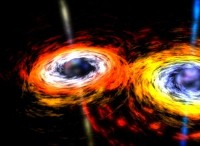According to the most common definition, the last blue moon occurred in October of 2020, and the next one is not expected until August of 2023. However, some people use the term blue moon more loosely to refer to any rare or unusual lunar event, such as a total lunar eclipse or a supermoon.
In summary, the celestial event on Friday, August 31st, is not considered a blue moon based on the most widely recognized definition. However, some people may use the term more broadly to describe it due to its rarity. It is still worth observing and enjoying this impressive astronomical phenomenon.







